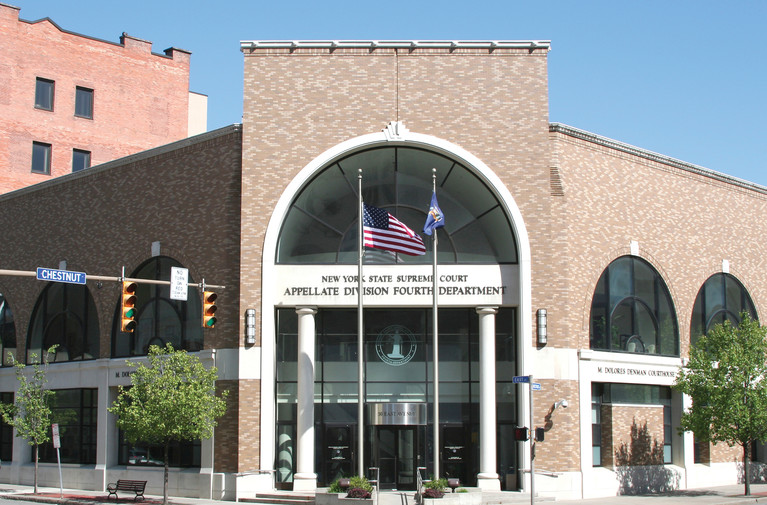Appellate Court Dismisses Claims Against Social Media Companies in 2022 Buffalo Shooting Massacre
Rochester, NY, July 28, 2025 – In a 3-2 ruling, the New York State Appellate Division, Fourth Department, has dismissed lawsuits against major social media companies, including Meta (Facebook and Instagram), Google (YouTube), Reddit, Alphabet, Amazon, Discord, 4chan, Snap, and Twitch, for their alleged role in the May 14, 2022, Buffalo mass shooting at Tops Friendly Markets. The decision reverses a 2024 Erie County Supreme Court ruling that had allowed the cases to proceed, citing protections under Section 230 of the Communications Decency Act and the First Amendment. However, the court upheld claims against gun accessory manufacturer MEAN LLC, marking a partial victory for the plaintiffs.
Background of the Case
On May 14, 2022, 18-year-old Payton S. Gendron carried out a racially motivated attack at a Tops supermarket in a predominantly Black Buffalo neighborhood, killing 10 Black individuals and wounding three others. Gendron, driven by the white supremacist “Great Replacement Theory,” planned the massacre for months, livestreaming it on Twitch. He pleaded guilty to state charges, including murder and terrorism motivated by hate, and was sentenced to life without parole in February 2023. He still faces federal charges that could carry the death penalty, with jury selection set for August 2026.
The lawsuits, filed by victims’ families, survivors, and witnesses, including the estates of Haywood Patterson, Katherine Massey, and Andre Mackniel, as well as store employee Latisha Rogers, argued that social media platforms were defective products designed to addict and radicalize users like Gendron. The plaintiffs, represented by Everytown Law, Bonner & Bonner, and others, claimed the platforms’ algorithms fed Gendron a “steady stream of racist and violent content,” contributing to his isolation and radicalization. They also alleged that the platforms failed to warn users, particularly minors, about their addictive design.
The Appellate Court’s Ruling
In a majority opinion written by Justice Stephen Lindley, joined by Justices John Curran and Nancy Smith, the court ruled that the social media companies are immune from liability under Section 230, which shields online platforms from responsibility for user-generated content. The court rejected the plaintiffs’ argument that the platforms should be held liable as product designers rather than publishers, stating that their content-recommendation algorithms are part of their role as publishers. The majority warned that holding platforms liable would “gut the immunity provisions” of Section 230 and “result in the end of the Internet as we know it,” exposing companies to liability for every untruthful statement on their platforms.
The court also cited First Amendment protections, noting that the racist content Gendron consumed, while heinous, is constitutionally protected speech. The plaintiffs had conceded this point but argued that liability stemmed from the platforms’ design, not the content itself. The majority disagreed, asserting that the platforms’ sorting and display of content fall under their publishing function.
Dissent and Appeal Prospects
Justices Tracey Bannister and Henry Nowak dissented, arguing that Section 230 does not apply because the lawsuits targeted the platforms’ addictive design, not the third-party content. They highlighted Gendron’s own admission of addiction to the platforms, quoting him: “It’s 2 in the morning … I’m a literal addict to my phone. I can’t stop consuming.” The dissenting judges contended that the platforms’ algorithms, which push specific content to maximize user engagement, constitute a design flaw unrelated to editorial decisions.
Plaintiffs’ attorney Kristen Elmore-Garcia called the ruling “frustrating” but noted that the dissent provides grounds for an automatic appeal to the New York Court of Appeals, the state’s highest court, due to the divided decision. “It’s not the end of the fight,” she told WKBW, signaling plans to pursue further litigation.
Claims Against Gun Accessory Manufacturer Upheld
In a companion ruling, the appellate court allowed claims against MEAN LLC to proceed. The Georgia-based company manufactured an MA Lock, a magazine lock marketed as permanent but easily removable, which Gendron used to modify his AR-15 to accept high-capacity magazines, illegal under New York law. The court rejected MEAN’s argument for immunity under the Protection of Lawful Commerce in Arms Act (PLCAA), finding that the plaintiffs’ allegations of false advertising and deceptive conduct—MEAN provided instructions to remove the lock—fall outside PLCAA protections. This decision upholds a February 2024 lower court ruling, allowing the case to move to discovery.
Implications and Broader Context
The dismissal of claims against social media companies is a significant blow to efforts to hold platforms accountable for their role in radicalization. Eric Tirschwell of Everytown Law criticized the reliance on Section 230, arguing that it allows social media companies to “skirt accountability” for nearly 30 years. The ruling underscores the legal challenges of regulating online platforms, particularly when algorithms amplify harmful content, even if protected by free speech.
Meanwhile, the upheld claims against MEAN LLC highlight a potential pathway for accountability in the gun industry, especially for accessories that enable illegal modifications. The case against Vintage Firearms and RMA Armament, which sold Gendron the assault weapon and body armor, also continues, signaling that the firearms industry remains under scrutiny.
What’s Next?
The plaintiffs’ legal team is expected to appeal the social media ruling to the New York Court of Appeals, leveraging the dissent to argue for a broader interpretation of platform liability. The ongoing case against MEAN LLC and other gun industry defendants will proceed to discovery, potentially setting a precedent for holding manufacturers liable for deceptive practices. As the Buffalo community continues to heal from the tragedy, these legal battles reflect a broader fight to address the intersections of technology, gun violence, and systemic racism.
Sources: Insurance Journal, US News, Reuters, Everytown Law, WKBW, Reason.com, Giffords.org
